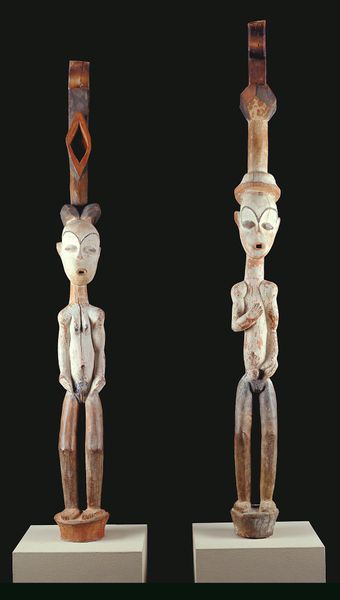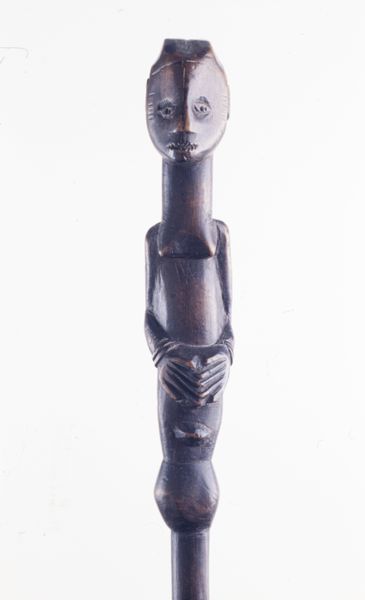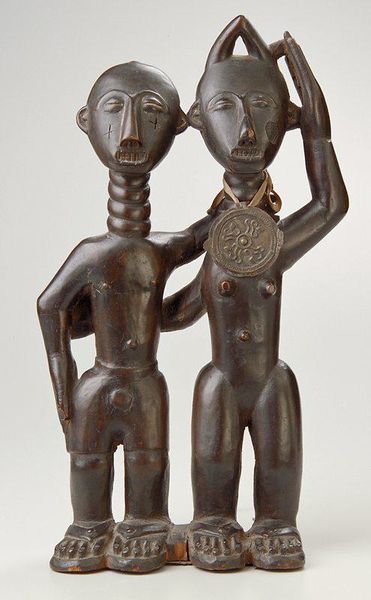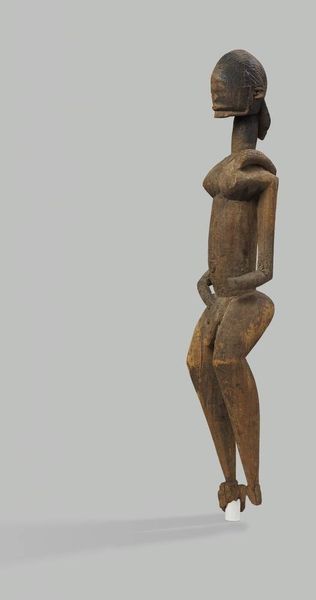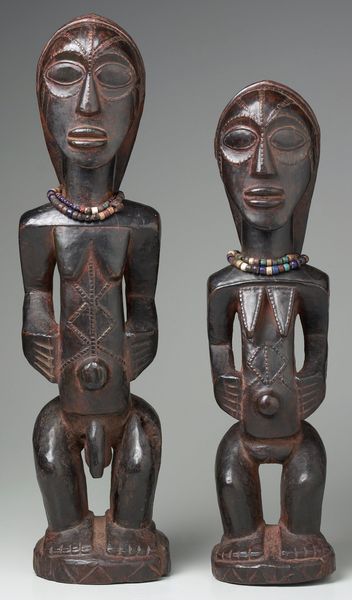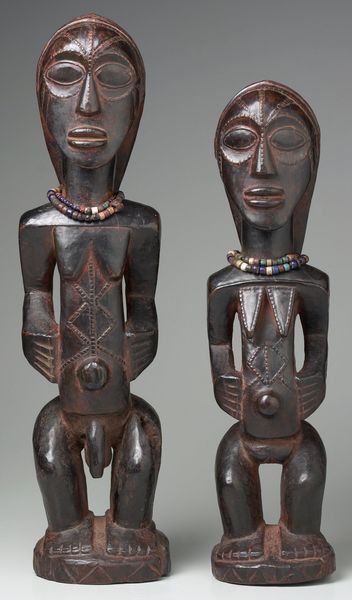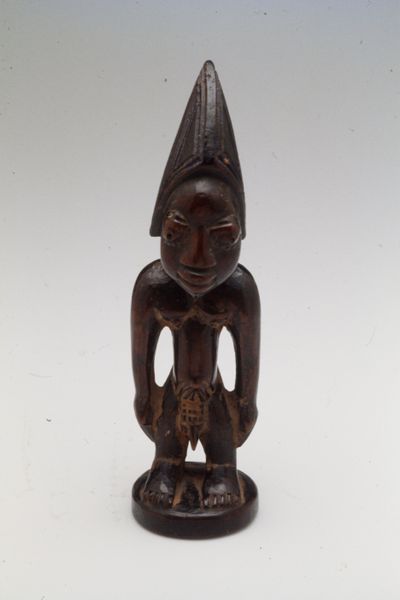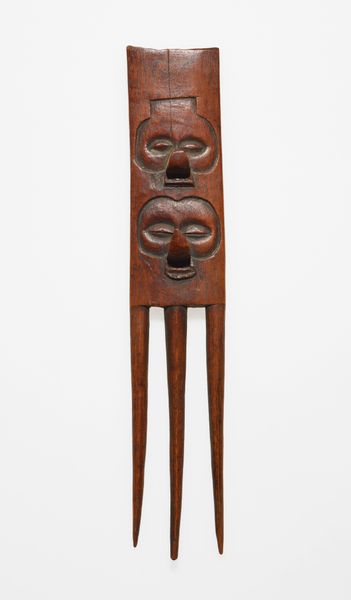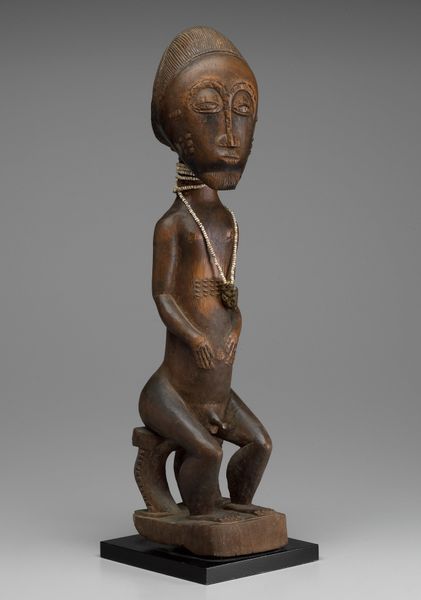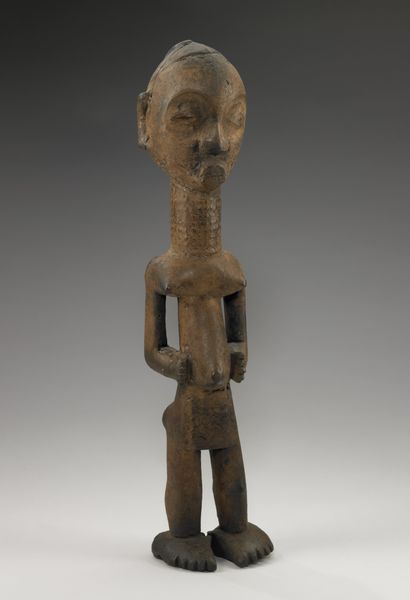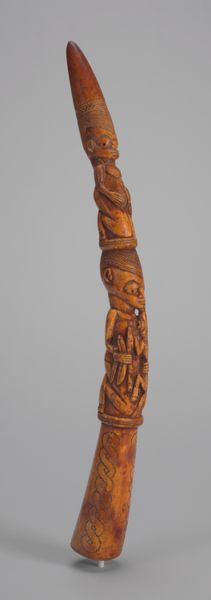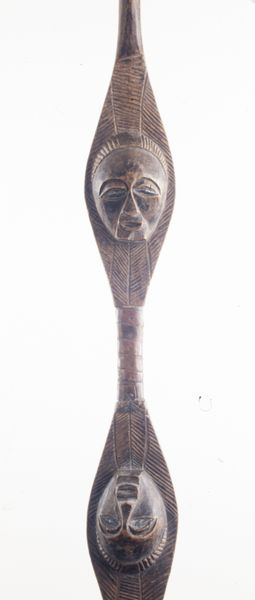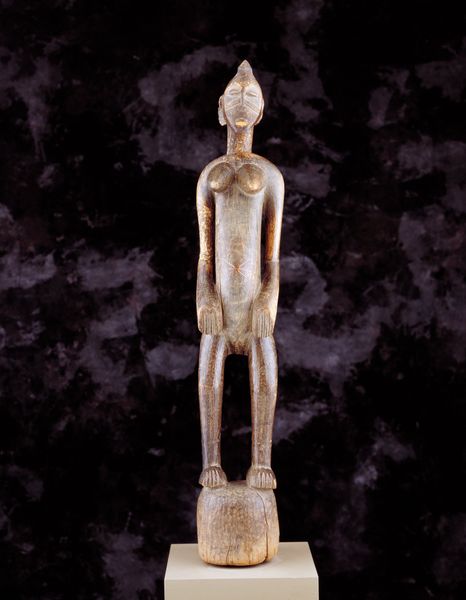
sculpture, wood
#
sculpture
#
figuration
#
sculpture
#
wood
Dimensions: 52 1/4 x 4 3/4 in. (132.7 x 12.1 cm)
Copyright: Public Domain
Editor: Here we have two "Male Figures" by the Tsogo people, carved from wood in the early 20th century. They seem serene, almost austere. Given the prominence of the wood, I wonder what can you tell me about them from a material perspective? Curator: Well, considering a materialist approach, let’s consider the choice of wood. Was this locally sourced? What tools were available to the Tsogo carvers at the time? These choices – the accessibility of the material and the technology used in its manipulation – immediately place these sculptures within a specific network of trade and technology. Editor: So, more than just an aesthetic choice, the material itself tells a story? Curator: Absolutely! Think about the labor involved. Was carving a specialized profession? Or was it integrated into other aspects of daily life? The sculptures' surfaces—the textures and any remaining pigments—speak to the techniques employed. The finish gives clues about the social context around this process. Do the surface’s imperfections reveal aspects of labor or hasty consumption? Editor: That’s fascinating. So, instead of just seeing the finished product, we should consider the entire production chain, almost like an industrial object, but made by hand. Curator: Precisely! Furthermore, where were these sculptures originally intended to be used? Were they displayed prominently in public spaces, or kept within private homes? The original function shapes not only the carving techniques but also their perception within Tsogo society and beyond. Editor: I never thought about analyzing art in this way before, but it’s exciting to consider the socio-economic circumstances surrounding creation. I see so much more now. Curator: Considering the raw materials and manual skills encourages us to respect the indigenous roots of the art, instead of reducing its appeal to form and motifs, don't you think?
Comments
minneapolisinstituteofart about 2 years ago
⋮
These figurative pillars of a chapel, used by followers of the Gabonese Bwiti religion, are painted with three highly symbolic colors: red refers to blood, birth, and life; white to sperm, breath, and spirit; and black to death and misfortune. The chapel is a physical expression of oppositions: left and right, high and low, male and female. The extension above the male is phallic while the lozenge shape above the female represents the feminine sex and the skiff that carries the soul of the deceased to the Otherworld.
Join the conversation
Join millions of artists and users on Artera today and experience the ultimate creative platform.
